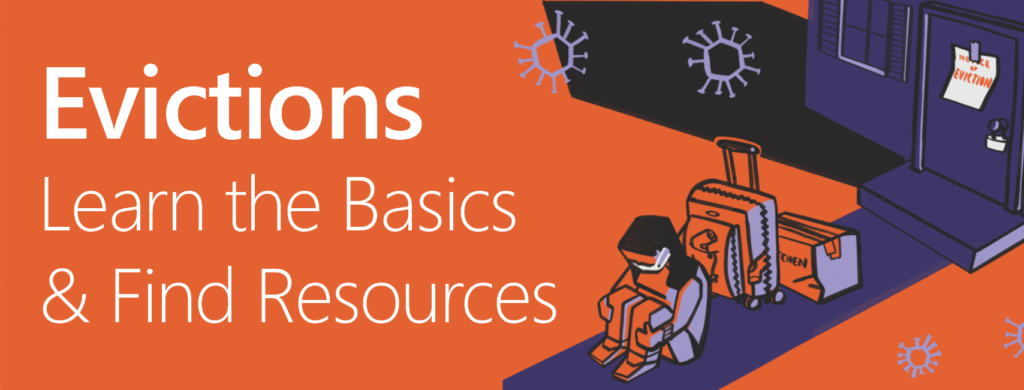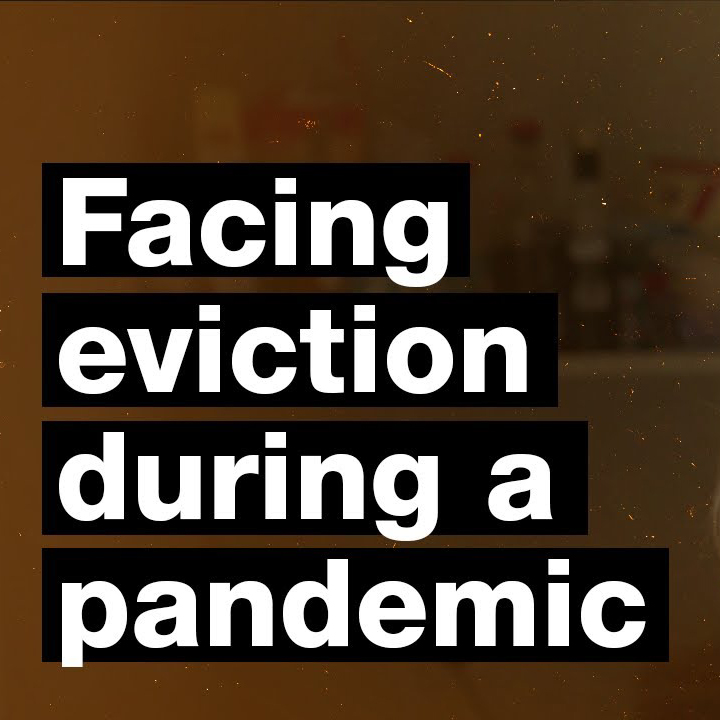Note: The purpose of this article is solely to share general information about evictions. This article is not meant to provide legal advice. Please seek legal or professional advice when dealing with an eviction.
The consequences of the pandemic have hit our communities hard, not only as a matter public health, but also financially. Many people are out of work and have not been able to pay their rents. Florida’s state eviction and foreclosure moratorium expired at the end of September. Since then, the realization of a possible eviction is weighing heavy upon many Florida residents. Many people are finding themselves saying “I received an eviction notice and don’t know what to do.” We have compiled some information and resources we hope will help South Florida and especially Broward residents better understand and deal with evictions.
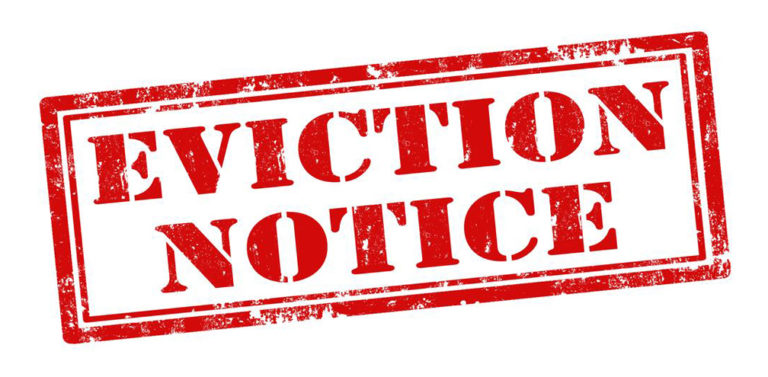
What is an Eviction?
Eviction is the removal of a tenant from rental property by the landlord. In some jurisdictions, it may also involve the removal of persons from the premises that were foreclosed by a mortgagee. The term eviction is the most commonly used in communications between the landlord and tenant.
Before a tenant can be evicted, depending on the jurisdiction involved, a landlord must win an eviction lawsuit. In the United States, rules for evictions and the eviction process are ruled by each state, local county, and city rules.
The Eviction Process
Most jurisdictions do not permit the landlord to evict a tenant without first taking legal action to do so. Such actions like changing locks, removing items from the premises, or terminating utility services, are generally illegal at any time during the legal process.
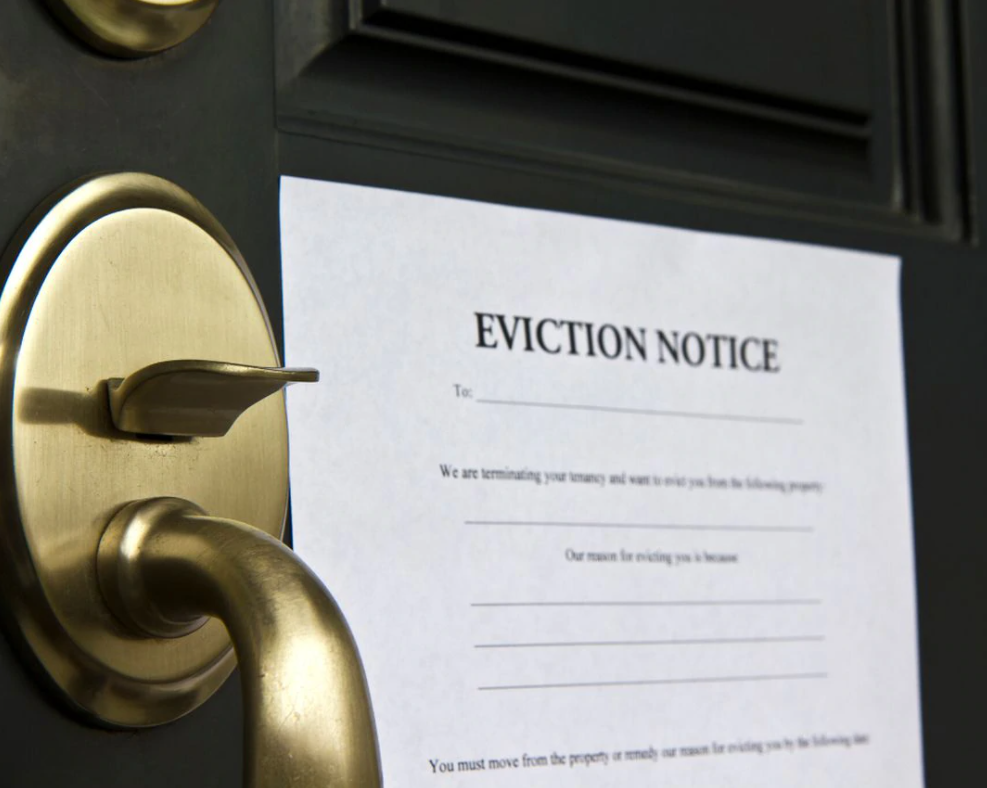 The Eviction Notice
The Eviction Notice
Residential ordinances generally prevent landlords from taking actions that may force a tenant out of their premises, such as force and threats, removing essential services, demolishing the property, or interfering with entrance locks. Generally, prior to filing a suit in court for eviction, the landlord must provide written notice to the tenant – commonly called a notice to quit or notice to vacate.
Eviction Lawsuit and Trial
If the tenant remains in possession of the property after the notice to vacate has expired, the landlord can then serve the tenant with a lawsuit. Depending on the jurisdiction, the tenant may be required to submit a written response by a specified date (5 business days in Florida), after which time another date is set for the trial. Other jurisdictions may simply require the tenant to appear in court on a specified date.
Removal from the Property
Even if the landlord is successful in court, most jurisdictions do not allow a landlord to evict a tenant without legal action being taken first. The landlord would have to obtain a writ of possession from the court and present it to the appropriate law enforcement officer. The officer then posts a notice for the tenant on the property that the officer will remove the tenant and any other people on the property (24 hours in Florida).
 Impacts on those being Evicted
Impacts on those being Evicted
Often problems with miscommunication or conflicts regarding when the actual eviction date is decided upon leaves some evictees thoroughly under-prepared when law enforcement comes.
The process of eviction can happen very fast or it can take some time, like during the recent eviction moratorium. Both can leave the evictee in a heightened state of stress, which makes them more susceptible to stress illnesses. Evictees may experience higher rates of depression, anxiety, high blood pressure, and even posttraumatic stress disorder.
Evictions often lead to a cycle where the eviction process makes maintaining a job difficult, which may lead to unemployment and further financial problems. Evictees often end up moving into poorer quality or overcrowded homes and are likely to experience long-term housing problems.
8 tips when facing an eviction
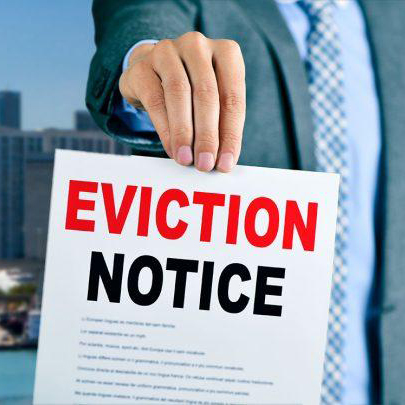 1. Act First
1. Act First
If you’ve lost your job or part of your income, your instinct may be to avoid your landlord. But it’s probably better to make contact and explain what’s going on. Landlords often complain that they’ve reached out to tenants and aren’t getting a response. Some landlords may be willing to work with tenants. If you’re going to pay late, not pay in full, or pay nothing, landlords will find that out soon enough anyway. Keeping open communication with your landlord is always a good idea.
2. Consider the Landlord
The company or person taking notices to your door does not inspire much sympathy. Still, landlords have to pay utilities, taxes, maintenance, and insurance too. You alone may be the source of a significant percentage of someone else’s income. You could get a more sympathetic ear if you acknowledge this in your conversations with your landlord.
3. Don’t Just Leave
Often, tenants receive a notice from a landlord and assume that there is no way to fix the problem. They decide that they should pack up and move. Don’t confuse the first step in the process with the last step. In fact, in most areas, you don’t have to move until there has been some sort of legal finding against you and an officer of the law arrives to carry out an order of eviction. That means there may be time for you to find a solution that doesn’t require you to move. However, If you decide to move, be aware that you are still responsible for the rent until you finally remove all your belongings from the residence and return the keys to the landlord.
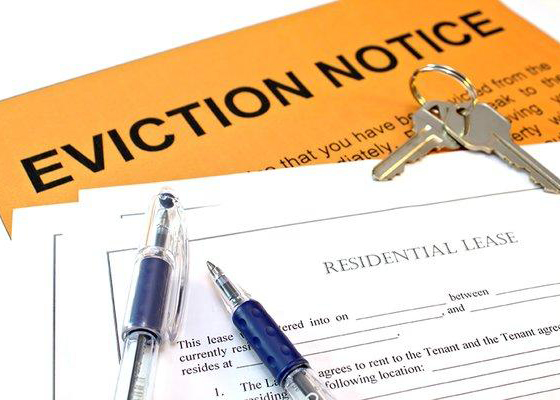 4. Make an Offer
4. Make an Offer
You’ll never know if you don’t ask. Your landlord may be willing to work out a deal with you. So talk to your landlord. There are different ways to reduce your costs: waiving rent, reducing rent, or offering to use a security deposit in lieu of your payment. Surveys point to high percentages of people not paying rent in full reporting that their landlord had made some kind of concession. Just be sure you get any agreements in writing.
5. Review the Rules
Depending on where you live and the details of the mortgage for the property you occupy, you might be protected from eviction, at least temporarily. If a landlord has put their mortgage for the property into forbearance, they cannot evict tenants while they also are skipping payments. A database of addresses that the National Low Income Housing Coalition created may help some renters figure out if their landlord must comply with the various federal rules. This is certainly an area where a lawyer can help.
6. Get Legal Help
If your landlord has filed an eviction against you contact your local Legal Aid office. Merely retaining a lawyer may make landlords more likely to negotiate. This is because it could signal that their own legal fees are about to go up. Many reports have pointed to improved outcomes for tenants who have counsel. Even if you’re not able to fend off an eviction, a lawyer may be able to negotiate a more favorable outcome including more time to find a new place.
7. Seek Outside Help
Rental assistance programs exist, although high demand has depleted some of them. Still, it’s worth seeking help if you need it. The National Low Income Housing Coalition maintains a list of programs on its website.
8. Watch for Changes
Nobody knows what will happen in Washington. Many lawmakers agree that another relief package is necessary, but what it will look like and when it will arrive is anyone’s guess. In the meantime, tenants facing eviction may try to pay as much as they can while keeping their fingers crossed in hopes that more financial help arrives.
Where can I find help?
If you are a Broward resident facing an eviction, you can reach out to Legal Aid Service of Broward County. You may qualify for free legal assistance with your eviction. For more information visit: www.browardlegalaid.org/eviction-assistance or call (954) 736-2497.
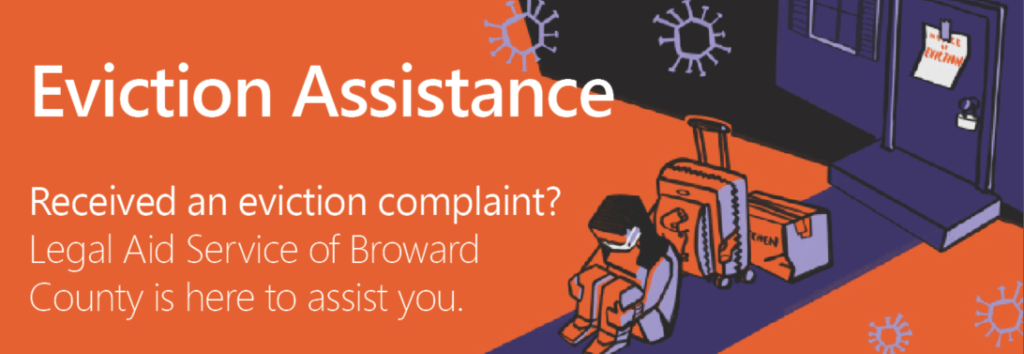
Other Online Resources for Evictions in Florida
- HUD Section 8
- Housing Options Programs (HOP)
- Florida Housing Finance Corporation
- Heart of Florida United Way
- City of Miami Eviction Prevention Program
- FL Dept of Children and Families Homelessness resource page
- Legal Aid Programs
- Legal Aid Service of Broward County
- National Low Income Housing Coalition
- Florida Law Help

